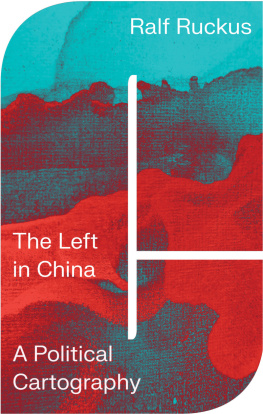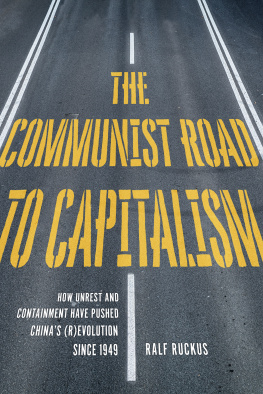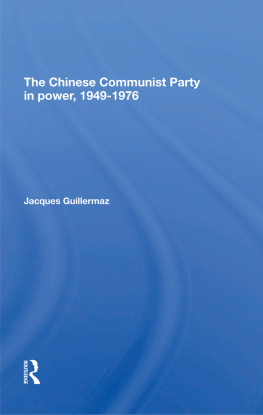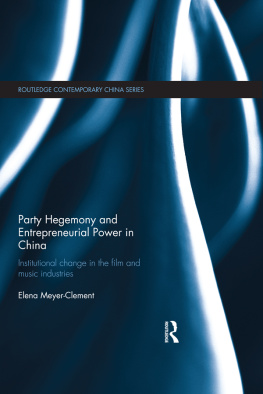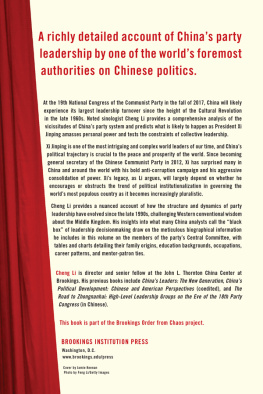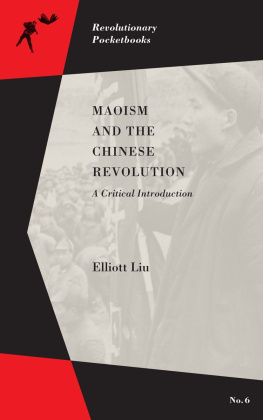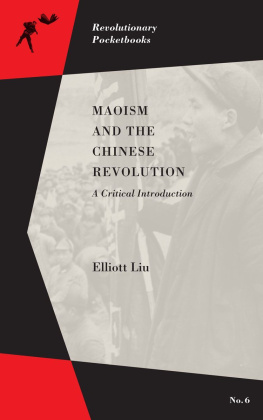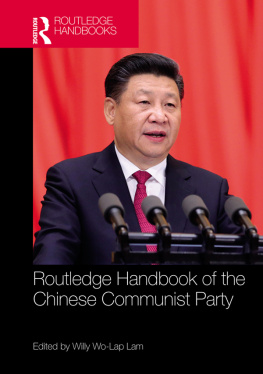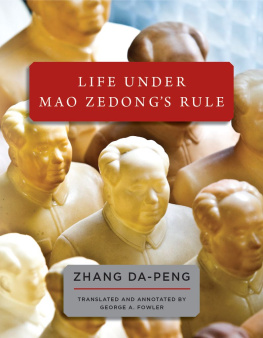Contents
Guide
The Left in China
Ruckus has taken on the task of encapsulating for a Western audience the history of the left in China, where it stands today, and its prospects The overview it provides is comprehensive, detailed, and strikingly insightful.
Brian Chee-Shing Hioe, Founding Editor of New Bloom
A must-read portrayal of the development of the left in China from the 1950s to the present, with important insights on how, despite its revolutionary rhetoric, the Chinese Communist Party has been an anti-left-wing force. Essential reading for global activists and scholars who believe a more egalitarian, democratic world is possible.
Elaine Hui, School of Labor and Employment Relations, The Pennsylvania State University
In this riveting analysis, Ruckus rescues left politics from the monopoly of the Chinese state and recenters the motor of history around social struggles from belowa much-needed perspective in understanding China from the international left.
Yige Dong, Department of Global Gender and Sexuality Studies, University of Buffalo
With the left at odds over how to understand the Chinese party-state and its growing international influence, Ralf Ruckuss thorough but clearly-written new book does a great service by shifting our attention to the oppositional movements of Chinese workers, peasants, students, and women who have contested inequality and exploitation over the past century-plus, often in the face of severe repression.
Manfred Elfstrom, Assistant Professor of Political Science at the University of British Columbia, Okanagan, and author of Workers and Change in China: Resistance, Repression, Responsiveness
The Left in China
A Political Cartography
Ralf Ruckus

First published 2023 by Pluto Press
New Wing, Somerset House, Strand, London WC2R 1LA and Pluto Press Inc.
1930 Village Center Circle, 3-834, Las Vegas, NV 89134
www.plutobooks.com
Copyright Ralf Ruckus 2023
The right of Ralf Ruckus to be identified as the author of this work has been asserted in accordance with the Copyright, Designs and Patents Act 1988.
British Library Cataloguing in Publication Data
A catalogue record for this book is available from the British Library
ISBN 978 0 7453 4295 5 Paperback
ISBN 978 0 7453 4451 5 PDF
ISBN 978 0 7453 4449 2 EPUB
This book is printed on paper suitable for recycling and made from fully managed and sustained forest sources. Logging, pulping and manufacturing processes are expected to conform to the environmental standards of the country of origin.
Typeset by Stanford DTP Services, Northampton, England
Simultaneously printed in the United Kingdom and United States of America
This book is dedicated to Alina.
Contents
List of Figures and Tables
FIGURES
TABLES
Abbreviations
ACFTU | All-China Federation of Trade Unions |
ACWF | All-China Womens Federation |
CCP | Chinese Communist Party |
CCRG | Central Cultural Revolution Group |
DWM | Democracy Wall Movement |
GLF | Great Leap Forward |
HFM | Hundred Flowers Movement |
KMT | Kuomintang, Nationalist Party |
LGBTIQ* | lesbian, gay, bisexual, transgender/transsexual, intersex and queer/questioning |
NGO | non-governmental organization |
PLA | Peoples Liberation Army |
PRC | Peoples Republic of China |
SEM | Socialist Education Movement |
SEZ | special economic zone |
SWC | Staff and Workers Congresses |
TVE | town and village enterprises |
WAF | Workers Autonomous Federation |
Preface
In the past two decades, the Peoples Republic of China (PRC) has become the second biggest economy in the world. It is now a core country for global capitalismits main manufacturing hub that is closely connected to other world regions through supply chains and trade. Economic changes in the PRC, like rising wages or problems in the export sector, have effects on the living conditions of people around the world.
Therefore, everywhere, left-wing groups discuss their position towards the PRCs global role in the context of their concern for social conditions and struggles of workers, peasants, migrants, and women* in their own regions. These groups are divided on how to assess the Chinese Communist Party (CCP) that has been in power in the PRC since 1949. Should they support the CCPs domestic rule and the PRCs position as an economic powerhouse in the global system of capitalist nation states?
Around the world, certain socialists see the CCP as left-wing or communist and a bulwark against U.S. imperialism. For others on the left, the CCP is the political organization of an authoritarian capitalism that exploits workers and represses labor unrest, feminist activism, environmental initiatives, and religious groups. Yet, many left-wingers have not made up their minds, often for the lack of information on China in general, and social struggles and left-wing organizing in particular. In addition, direct connections and exchanges with left-wing activists in the PRC have been difficult to sustain in recent years due to the harsh repression of left-wing activities by the CCP regime. It is all the more important, therefore, to provide an analysis of social struggles and left-wing organizing in the PRC over the past decades. That is the aim of this book.
The initial impulse for this project came from Martin Birkner, who invited me in 2018 to write a book on the left in China for his book series on the history of the left in different countries for It covers the seventy years of CCP rule and analyzes the political, economic, and social contradictions in the socialist, the transitional, and the subsequent capitalist period. The historical overview provided in that book left no room for a more detailed analysis of left-wing movements, though, and Martins proposal gave me the chance to plan a second book that takes up some of the general threads laid out in the first but focuses on the connection of struggles and left-wing organizing in the PRC.
Originally, I had planned to conduct a series of interviews with left-wing activists in the PRC and to dedicate a large part of this book to the left-wing activities and debates of the past decade. Then two things got in the way: repression and the pandemic. Until the mid-2010s, there had been at least some space for left-wing organizing and public debate, but, beginning in 2015, labor and feminist activists came under increasing pressure. This culminated in the summer of 2018, when Maoist activists supported factory workers at Jasic Technology in Shenzhen, Guangdong province. State security forces arrested and prosecuted members of left-wing groups, not just in Shenzhen but subsequently also in other parts of the PRC, and stepped up censorship of left-wing online content. After this blow, most left-wing groups had to take cover and limit their (public) engagement. Any detailed presentation or description of what they discuss and door even just contacts and interviews with a foreignerwould have risked putting them in danger, especially if connected to political activity that tries to bridge left-wing activism in the PRC and elsewhere. In addition, the outbreak of the Covid-19 pandemic in Wuhan in early 2020 led to rigid travel restrictions. The CCP regime followed a zero-Covid strategy and basically sealed off the country, making it even harder to enter and conduct research.

